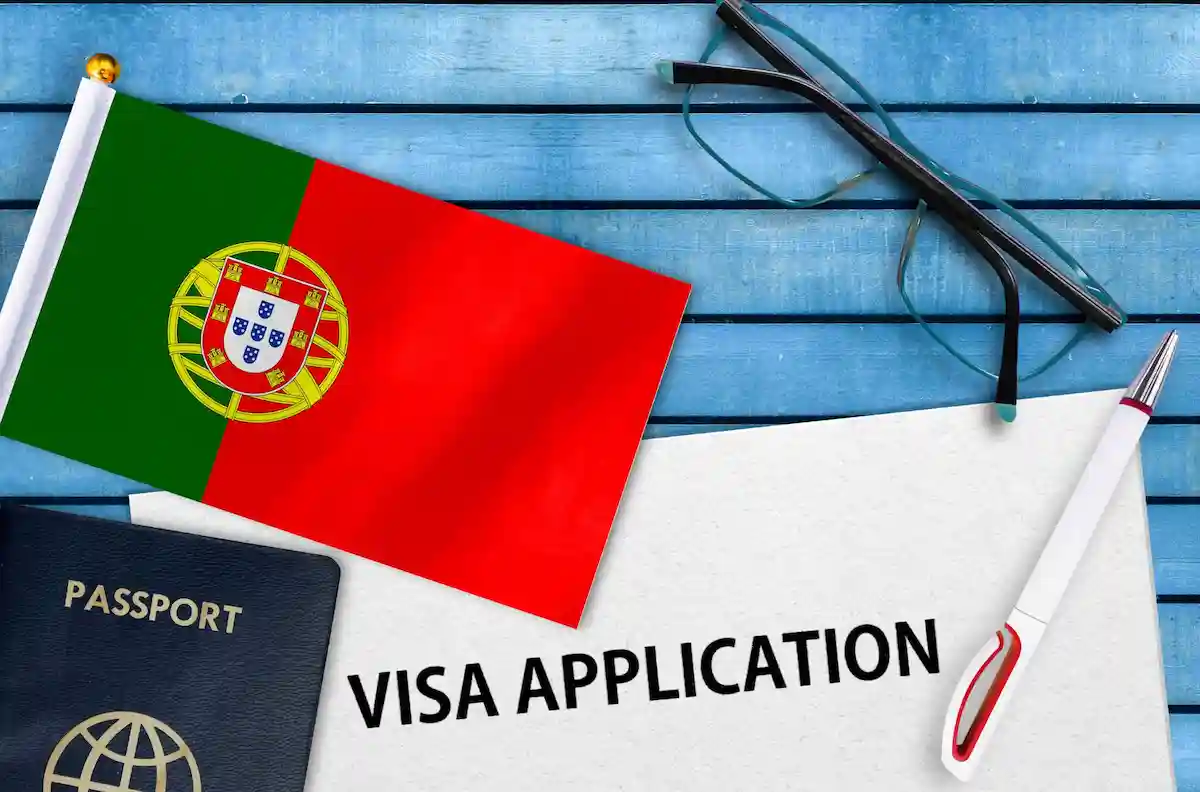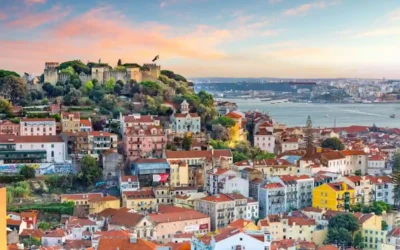The D7 Visa for Portugal is gaining popularity among retirees, remote workers, and passive income earners dreaming of a new life in Europe. Portugal’s warm weather, affordability, and quality of life make it an attractive choice. But is the process as easy as it sounds?
In this guide, we strip away the filters and give you the honest rundown: who qualifies, what it costs, and what to expect—plus what they don’t tell you until you’re knee-deep in paperwork.
What Is the D7 Visa?
The D7 Visa is a long-term residency visa for non-EU/EEA/Swiss citizens who can prove a stable passive or remote income from outside of Portugal. While it was originally designed with retirees in mind, it’s now also a popular route for remote workers, digital nomads, freelancers, and investors.
The visa grants temporary residency for two years and is renewable for another three years. After five years of legal residency, you become eligible to apply for permanent residency or Portuguese citizenship—as long as you meet the requirements.
You also gain access to public healthcare, the education system, and visa-free travel across the Schengen Area.
Who Can Apply?
To qualify for the D7 visa, you must:
- Be a non-EU/EEA/Swiss national
- Have a clean criminal record
- Prove you have sufficient recurring income
- Secure accommodation in Portugal (rental or owned)
- Carry valid private health insurance
Acceptable Income Sources
This visa isn’t just for retirees. You may qualify if you earn income from:
- Remote work for an international company
- Freelancing or online business income
- Rental properties
- Investments (stocks, dividends, etc.)
- Royalties or pensions
The key is that the income must be consistent, well-documented, and originate from outside Portugal.
How Much Income Is Required?
Portugal ties its D7 income requirements to the national minimum wage, which is around €820/month in 2025. But that’s just the baseline:
- Main applicant: €820/month
- Spouse or partner: +50% (€410/month)
- Each dependent child: +30% (€246/month)
So, a couple with one child should show around €1,476/month in income or a savings cushion of €18,000–€25,000 to cover a year’s cost of living.
If your income is seasonal or less stable, you’ll want higher savings and a detailed explanation in your cover letter.
Step-by-Step Application Process
1. Get a NIF & Open a Portuguese Bank Account
Before anything else, you’ll need a Portuguese tax number (NIF) and a local bank account. These can usually be set up remotely through a lawyer or relocation service.
2. Secure Accommodation
Consulates typically want to see proof that you’ll have somewhere to stay upon arrival. This could be:
- A 6–12 month lease (preferred)
- Hotel or Airbnb bookings (risky)
- A signed invitation from a host
3. Gather Your Documentation
Here’s what you’ll need:
- Completed visa application form
- Valid passport (at least 6 months before expiration)
- Two passport-sized photos
- Proof of recurring income
- Portuguese NIF and bank statement
- Proof of accommodation
- International health insurance (with full coverage)
- Criminal background check (apostilled)
- A compelling cover letter explaining why you want to live in Portugal
4. Apply at Your Home Country’s Portuguese Consulate
Book an appointment (well in advance), submit your paperwork, and attend a short interview.
Processing Time: Anywhere from 4 to 12 weeks, depending on your consulate.
5. Travel to Portugal
Once approved, you’ll get a 120-day visa allowing you to enter Portugal and begin residency procedures.
6. AIMA (Formerly SEF) Appointment
Within those 120 days, you must attend your AIMA appointment to receive your 2-year residence card. Book early—as appointment availability is limited.
Why People Choose the D7 Visa
Here’s what makes the D7 Visa a great option:
- ✅ Pathway to Citizenship after 5 years
- ✅ Visa-free travel in Schengen (26 countries)
- ✅ Access to Portuguese public services, including healthcare
- ✅ Bring your family under family reunification
- ✅ Low cost of living in Portugal compared to other Western countries
Real Challenges of the D7 Visa
Let’s get real: the D7 Visa isn’t all smooth sailing. While it offers a solid path to European residency, it also comes with a fair share of headaches and hidden complications. Here’s a deeper dive into the most common challenges—and some advice to help you navigate them more smoothly.
Bureaucratic Hurdles
Portugal is infamous for its slow and often inconsistent bureaucracy. Even seasoned expats find it frustrating.
- What Happens: You may submit the same document multiple times. One clerk might say it’s fine, another might say it’s not.
- Real-Life Example: One applicant submitted their lease agreement three times before it was accepted—each time for a different reason.
- Pro Tip: Over-prepare. Bring multiple copies of every document. Keep emails and receipts. Don’t assume anything is ‘common sense.’
Financial Scrutiny
Your income and savings will be thoroughly analyzed.
- What Happens: Consulates want to see steady income over several months, not just a one-time deposit.
- Real-Life Example: A freelancer with inconsistent monthly income was asked for a 12-month breakdown, along with client contracts.
- Pro Tip: Organize your finances and highlight consistency. Include a detailed explanation in your cover letter for any income variations.
Rejection Risks
Some consulates are stricter than others—particularly in countries like the U.S., U.K., and Canada.
- What Happens: Applications get rejected for vague cover letters, short-term housing, or incomplete financial documentation.
- Real-Life Example: One applicant was rejected because their Airbnb reservation was seen as too temporary.
- Pro Tip: Secure a 6–12 month lease if possible. Make your cover letter personalized, thorough, and specific to your lifestyle.
Health Insurance Issues
Many popular international insurance plans don’t meet Portugal’s minimum requirements.
- What Happens: Policies lacking unlimited emergency coverage or full hospitalization get denied.
- Real-Life Example: Applicants using standard travel insurance were turned away and had to scramble for compliant policies.
- Pro Tip: Get a plan that’s clearly marked as suitable for Portuguese visa requirements. Stick to providers with experience in D7 applications.
Tax Complexity
After you become a tax resident, Portugal could tax your global income.
- What Happens: Many applicants are unaware that passive income, pensions, and dividends might be taxed.
- Real-Life Example: One retiree didn’t register for the NHR program on time and ended up paying unexpected taxes.
- Pro Tip: Consult a Portuguese tax expert before you apply. Sign up for the NHR scheme during your first year in Portugal.
These challenges are not insurmountable—but they do require planning, patience, and preparation. Having a support network, joining expat forums, or working with an advisor can help make the process feel less overwhelming and more empowering.
It’s not all sunshine and vinho verde. Be prepared for:
- Frustrating Bureaucracy: Documents get lost, delays happen, and rules aren’t always clearly explained.
- Financial Scrutiny: You’ll need bank statements, contracts, and clear income trails.
- Visa Rejections: Some consulates are stricter than others, especially about proof of income and accommodation.
- Healthcare Insurance Confusion: It must meet specific coverage requirements—many common policies won’t qualify.
- Tax Implications: Portugal may tax your global income. Consider consulting a tax advisor about the NHR (Non-Habitual Resident) scheme.
After You Get Approved
Once you’re approved and have landed in Portugal, the process isn’t over—it’s just beginning. Now it’s time to transition from visa holder to fully settled resident. Here’s a breakdown of what to expect and when:
Within Your First Week:
- 📄 Register with your local freguesia (town hall): This helps confirm your official residence in Portugal. Bring your rental contract, ID, and proof of address.
- 🧾 Open a utility contract in your name (if not done already): Electricity, water, or internet bills help prove your residence.
Within Your First Month:
- 💳 Apply for your SNS number: Go to your local health center (Centro de Saúde) with your residence permit, NIF, and freguesia registration. This gives you access to the public healthcare system.
- 🚗 Exchange your driver’s license: If you’re from a country with a license exchange agreement, do this within 90 days to avoid having to take a Portuguese driving test.
- 🐾 Register your pet: If you brought pets, check if they need to be registered with the local junta or vet.
Ongoing Responsibilities:
- 🧾 File your Portuguese tax return (IRS): Even if your income is entirely foreign, you’re required to report it annually. Tax season usually starts in April and runs until June.
- 🗣️ Learn Portuguese: It may not be legally required at this stage, but attending language classes helps immensely with integration. Plus, it’s a requirement for permanent residency and citizenship.
Tips for a Smooth Transition:
- 📆 Mark important dates: Residence renewal, tax filing deadlines, and driver’s license timelines should be on your calendar.
- 📚 Keep a physical and digital folder of all your important documents: visas, receipts, tax files, lease agreements, insurance, and health documents.
- 👥 Join local expat groups or forums: These communities are full of helpful advice and real-time support from others who’ve gone through the same journey.
By staying organized and proactive, you’ll not only comply with legal requirements but also ease into your new life in Portugal with confidence. you land and get your residence permit, here’s what you’ll need to take care of:
- 📄 Register with your local freguesia (town hall)
- 💳 Apply for your Portuguese health number (SNS)
- 🚗 Exchange or register your driver’s license
- 🐾 Prepare the right paperwork if you’re bringing pets
- 🧾 File your annual Portuguese tax return, even if your income is foreign
And of course, start learning a bit of Portuguese—it helps a lot, even though many people speak English.
Common Pitfalls to Avoid
Many D7 applicants stumble over these common mistakes—but the good news is, most are avoidable with a little foresight:
- 🛑 Submitting incomplete or incorrect documents: Double-check every item on your consulate’s checklist. If something seems unclear, contact them directly or consult with an immigration advisor. Make sure every document is valid, signed, and in the correct format.
- 🛑 Ignoring the need for translations or apostilles: All foreign documents—like police records or birth certificates—must be translated into Portuguese by a certified translator and apostilled. Not doing this is one of the top reasons for rejections.
- 🛑 Providing vague or generic cover letters: Your cover letter should be personal, detailed, and specific to your situation. Explain your income sources, why you chose Portugal, how you plan to support yourself, and what your long-term intentions are.
- 🛑 Underestimating the importance of proof of accommodation: Avoid short-term stays unless absolutely necessary. A 6–12 month lease shows commitment and stability. If you’re staying with someone, include a signed statement from your host, proof of their residency, and possibly their ID.
- 🛑 Waiting too long to book your AIMA appointment: These appointments fill up quickly—sometimes months in advance. Book yours the moment you receive your visa, even if you’re still abroad. A missed deadline could jeopardize your residency process.
The best way to sidestep these pitfalls is to stay organized, proactive, and well-informed. Keep a checklist, gather documents early, and don’t hesitate to get help if needed. D7 applicants stumble over these common mistakes:
- 🛑 Submitting incomplete or incorrect documents
- 🛑 Ignoring the need for translations or apostilles
- 🛑 Providing vague or generic cover letters
- 🛑 Underestimating the importance of proof of accommodation
- 🛑 Waiting too long to book your AIMA appointment
Frequently Asked Questions
Can remote workers apply even if they’re not self-employed?
Yes, as long as you have a remote job contract and proof of consistent income.
Do I need to speak Portuguese to get approved?
No, but it helps when dealing with bureaucracy. For permanent residency or citizenship, language skills are required.
Is health insurance still needed after getting residency?
Yes, at least for the first year. After that, you may qualify for the public system.
What happens if my visa is rejected?
You can reapply after fixing the issues—usually related to documents or income.
Can I use short-term rentals for accommodation proof?
Some consulates accept them, but it’s risky. Long-term leases are more reliable.
Final Thoughts
The D7 Visa isn’t a free pass to paradise—but it’s a practical, achievable route for those with stable income and the patience to navigate Portugal’s bureaucracy. If you’re dreaming of a slower pace of life, historic towns, and ocean views, it could be your ideal path.
✪ Need help with digital strategy? Check out our services at Creative60.






0 Comments